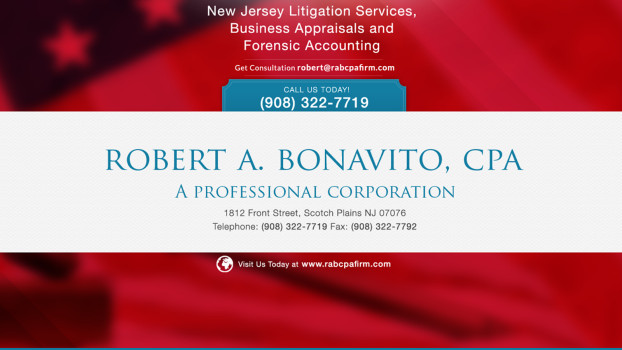
Robert A. Bonavito, CPA
Reviews Summary
About This Listing
Who Can Work with a CPA?
*Note: CPAs may specialize in different areas. Be sure to check credentials and service offerings.*
First-Time Clients
If this is your first time working with a CPA, don’t worry — most professionals offer a free consultation and will walk you through what to expect. You may be asked to complete an intake form, share financial documents, or set clear goals for your session.
What to Know Upfront:
*Note: Every CPA operates a bit differently. Don’t hesitate to ask questions before committing.*
What to Bring
*Tip: Organize your documents in advance to save time and ensure accuracy.*
Preparing for Your Appointment
*Note: Preparation helps you make the most of your CPA’s expertise.*
How to Get Started
Other Helpful Info
*Note: Every CPA is different — take time to find one who fits your goals and style.*
Features
Contact Information
Address
1812 Front St
Scotch Plains, New Jersey 07076
Phone
+1 908-322-7719Hours
Customer Reviews
Outstanding litigation expert. Professional and reliable. I've worked with Mr. Bonavito for more than a decade. He has a deep understanding of accounting, business damages, and lost profits. His litigation reports have been of the highest quality, and he knows how to testify at deposition and in court. Equally important, he is adept at identifying weaknesses in the opposition's reports. My highest recommendation.
As a family and business law attorney I have used Bonavito CPA forensic services for the last 10 years his reports are accurate detailed and essential for settling a case and for a winning a case in court. Once you use his services you will understand why I use no one else and how important his firm is in any litigation that needs forensic accounting. Highly Recommended.
Robert Bonavito CPA has been a staple in our household for decades and we couldn't be happier. He's efficient, knowledgeable, timely, and always an expert in the field. We are so grateful to him and his office for the many decades of outstanding service, advice, council & guidance.
Bob Bonavito has been my trusted accountant for both my personal and business accounting needs for 14+ years. He is professional & always available to help with any situation that arises. When we had litigation issues, Bob was there to handle everything.
Our firm has enjoyed working with Robert Bonavito, CPA on several forensic accounting matters. While Robert has a very high level of technical proficiency in forensic accounting, he also has the uncanny ability to decipher complex financial and economic data which results in reporting that is very understandable and useful in the forensic accounting process.
Bob is a dedicated, exceptional forensic accountant. I have engaged him a dozen times to represent my clients in litigation and his one-on-one persona is the best. The valuation results are always what judges want to hang their hat. William J. Berman, Esq. Berman Rosenbach, LLC Bernardsville, NJ
We have been working with Robert Bonavito and his team for the past 20 years, including for our family annual taxes and for the business I started up. He has been amazing from the start, making the complex clear for us, helping us understand key success factors for my business, always being professional and positive. We highly recommend Robert and this team, and are so glad that friends referred him to us years ago.